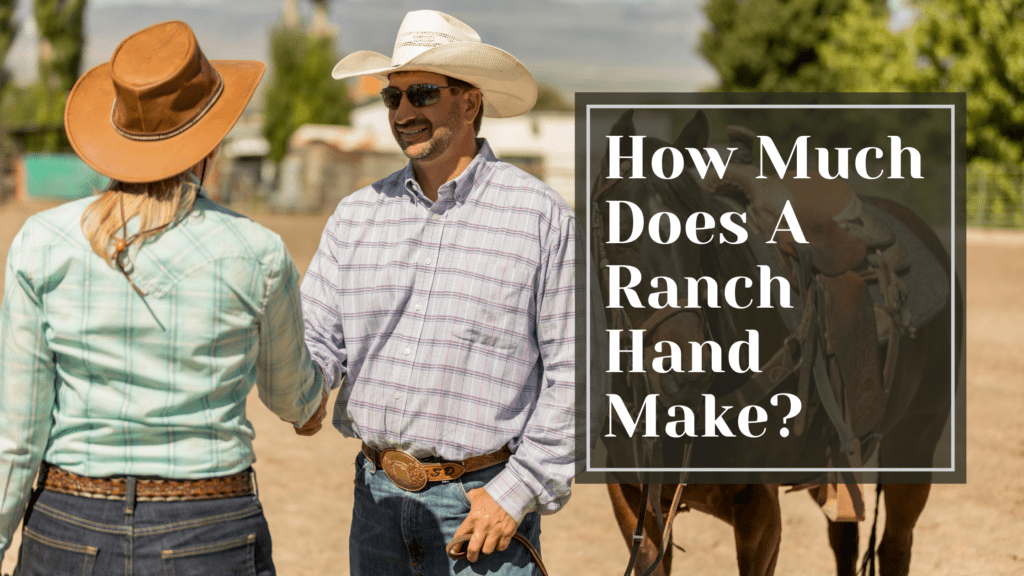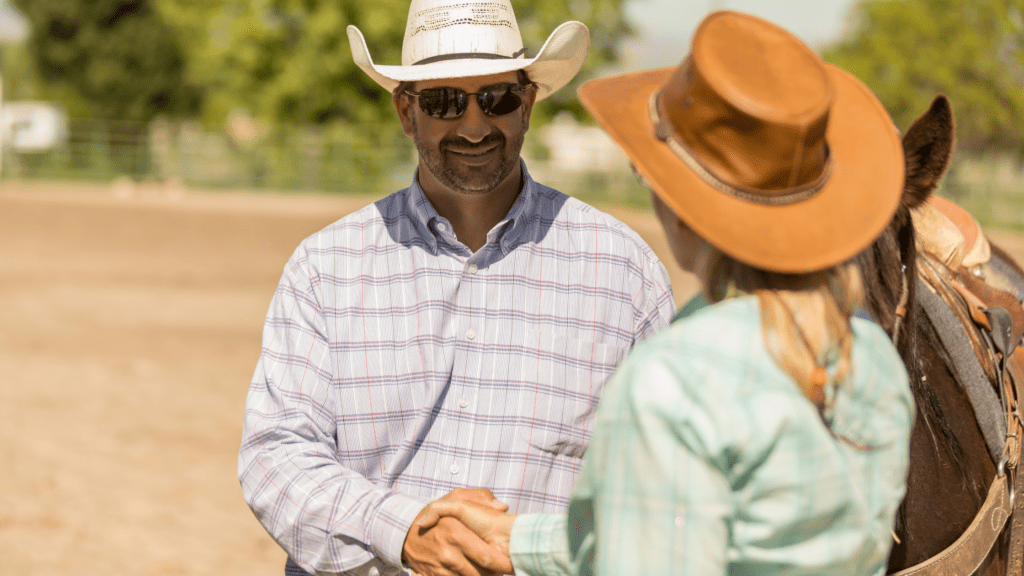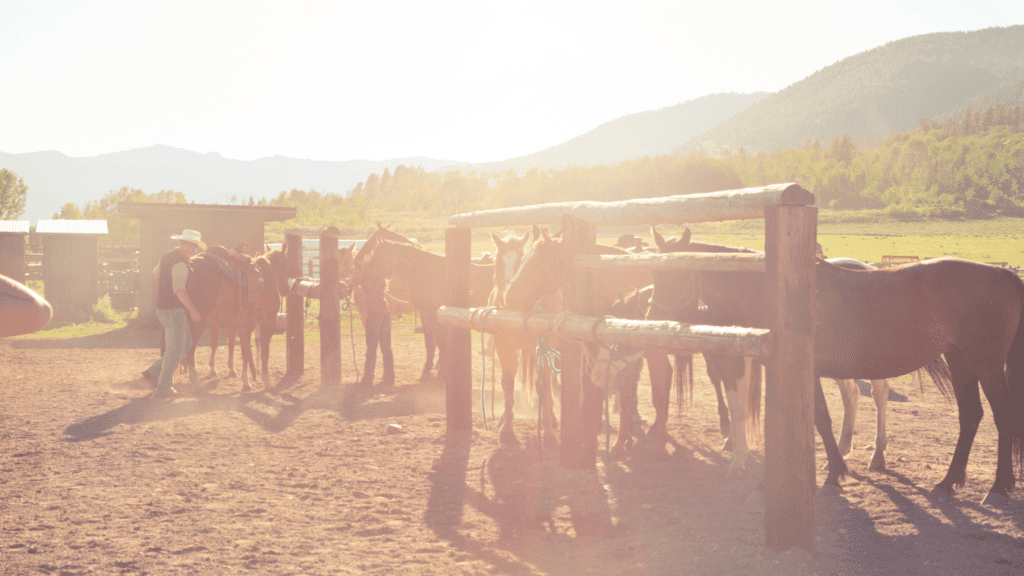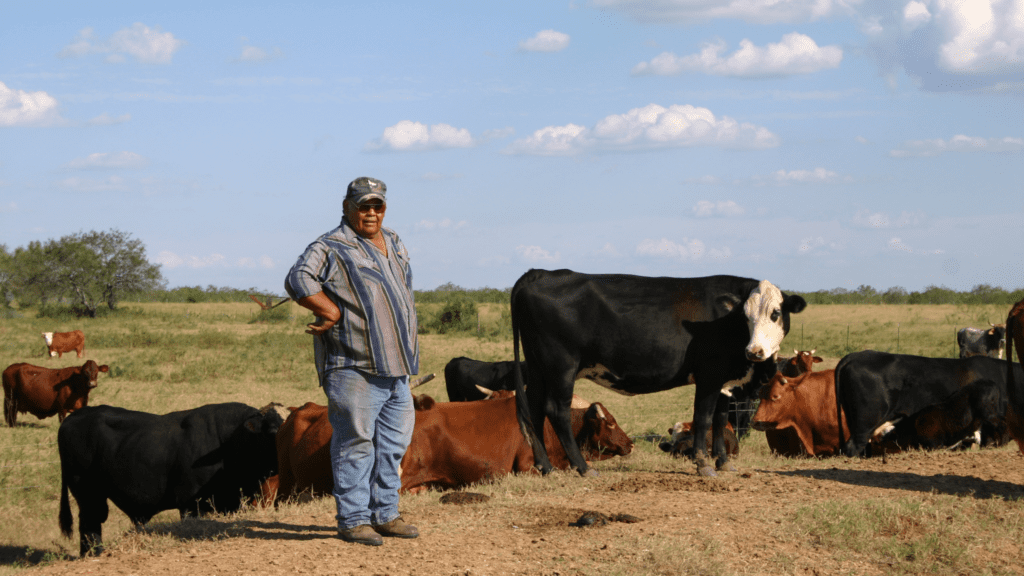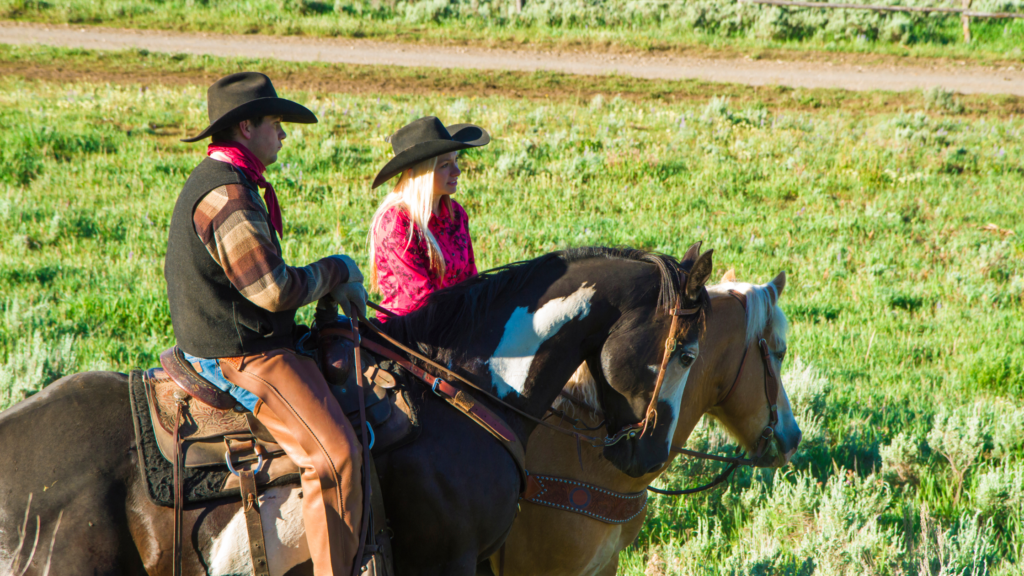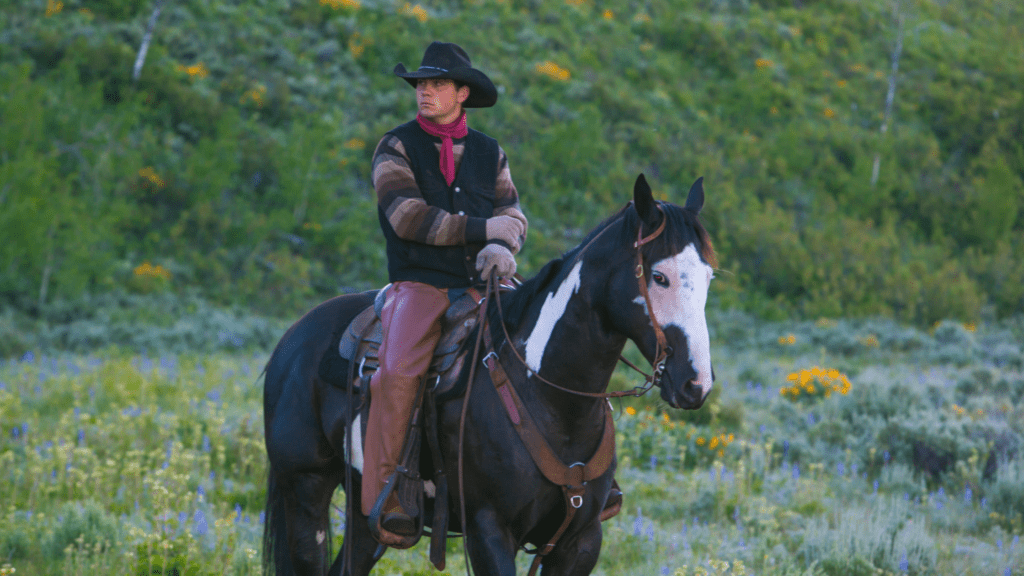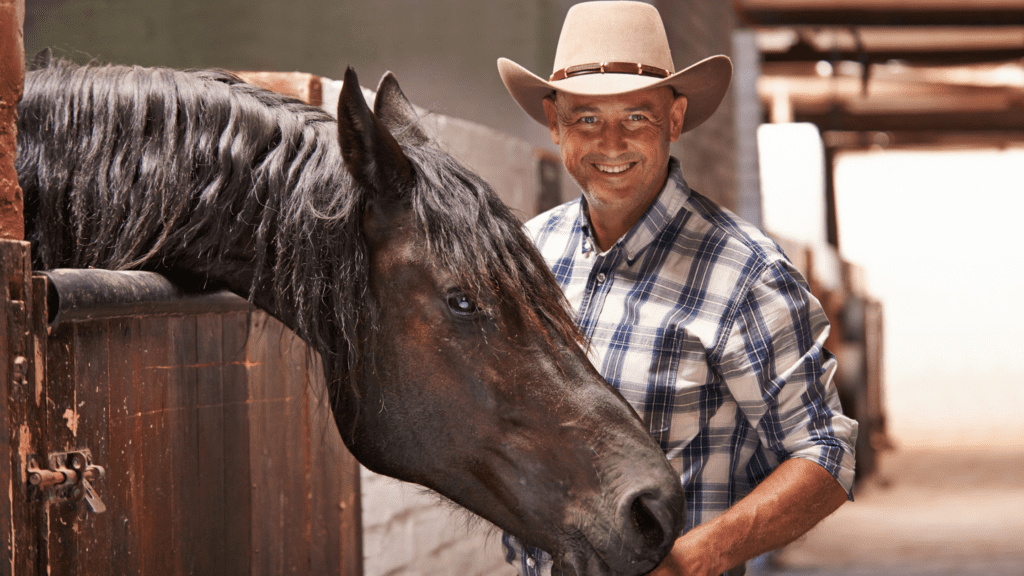As you consider pursuing a career as a ranch hand, an important question to ask is how much you can expect to earn. The role of a ranch hand, also known as a cowboy or cattle hand, is physically demanding work that requires long hours completing essential tasks on a cattle ranch or farm. However, the job can be very rewarding for the right person who enjoys working outdoors and has a passion for animal husbandry. We will use this guide to understand a ranch hand’s typical salary and duties so you can determine if this career path aligns with your skills, interests, and financial needs.
Table of Contents
Toggle
Ranch Hand Salaries in Montana
As a ranch hand in Montana, you can earn an average salary of $33,000 annually. Salaries range from $25,000 to $42,000 annually, depending on experience, skills, location, and employer.
- Entry-level ranch hands with less than 5 years experience typically earn $25,000 to $35,000. Those with more experience, from 5 to 10 years, make $30,000 to $38,000. Very experienced ranch hands with 10+ years of experience earn $35,000 to $42,000.
- Salaries also vary based on location and cost of living. Ranch hands in rural areas and small towns generally earn slightly less. Those working on large commercial ranches or cattle farms usually make more. Some employers provide housing, meals, and other benefits besides salary.
- Duties such as feeding livestock, vaccinating animals, assisting with branding or breeding, maintaining equipment, and repairing fences impact pay. Ranch hands with additional skills like operating heavy equipment, irrigating crops, or managing ranch operations may earn more. Bilingual ranch hands are also in high demand and compensated better.
Ranch Hand Pay in Texas: What You Can Expect
As a ranch hand in Texas, you can expect to make an average of between $25,000 to $35,000 per year. Actual pay will depend on several factors, including:
- Experience and skills: Those with more experience, especially wrangling and livestock management experience, tend to make higher pay. Skills in operating ranch vehicles and equipment are also valued.
- Job responsibilities: Ranch hands with more responsibilities, such as overseeing other workers or managing key ranch operations, typically receive higher compensation. Hands in charge of critical tasks like breeding programs or health monitoring also tend to make more.
- Location and cost of living: Ranch hand pay in Texas is often higher in areas with a higher cost of living, especially around major cities. Remote ranches may pay a bit less.
- Seasonal work: Many ranch hands only work seasonally or part-time. Pay is usually higher during peak seasons like spring calving or fall shipping. Seasonal hands may make $15-20 per hour.
- Benefits: Besides paying, some ranch hands receive benefits like housing, utilities, health insurance, retirement plans, and vehicle use. The availability and quality of benefits can significantly impact total compensation.
Ranch Hand Salary Wyoming
According to the U.S. Bureau of Labor Statistics, the median pay for ranch hands in Wyoming is around $25,000 annually. Actual salaries can range from $20,000 to $35,000 annually, depending on experience, job responsibilities, and location within the state.
Ranch Hand Pay Scale
Ranch hands in Wyoming typically earn an hourly wage averaging between $10 to $15 per hour. More experienced hands and those with additional skills like equine care, fencing, or heavy equipment operation tend to make higher wages. Some ranches may provide housing, utilities, and meals in addition to a salary.
Factors That Affect Ranch Hand Pay
Several factors determine a ranch hand’s salaries:
- Experience and skills: The more experienced the ranch hand and the greater their skills, the higher their pay will be. For example, a ranch hand proficient in handling livestock, operating heavy equipment, and maintaining ranch facilities will typically earn more than an entry-level hand.
- Job responsibilities: Ranch hands with more responsibilities, such as overseeing other hands, handling administrative tasks, or managing key parts of ranch operations, tend to be on the higher pay scale. Regular ranch hands primarily responsible for basic daily chores will earn less.
- Location: Ranch hands working in more remote, isolated areas of Wyoming may earn slightly higher pay due to the increased cost of living in those locations and the potential hardship of the work. Ranches located closer to cities and towns typically pay less.
- Seasonal work: Ranch hands employed year-round, especially those considered permanent or long-term staff, usually earn higher annual wages than seasonal or temporary hands. Seasonal wages are often lower due to the short-term nature of the work.
- Ranch size: Larger ranches, especially those with 500 cattle or more, typically pay ranch hands higher wages than smaller ranches. More livestock and acreage generally mean greater workloads, responsibilities, and skills required.
How Much Does a Ranch Hand Make in Different States
Nebraska Ranch Hand Salary
In Nebraska, another major cattle state, ranch hands make a mean salary of $33,000. The highest paying positions are found in the Sandhills region, where ranch hands earn $36,000 or more due to the added challenges of the terrain and climate.
South Dakota Ranch Hand Salary
In South Dakota, ranch hands earn a mean salary of $32,000 annually. More experienced individuals employed on large cattle ranches in the western part of the state tend to make $36,000-$40,000 annually.
More Ranch Hand Salaries
In states with smaller cattle operations like Colorado, New Mexico, and Montana, ranch hands typically earn $28,000 to $35,000. Salaries on the higher end of the range are found at guest ranches, where additional skills like guiding tourists on the ranch’s activities are required.
- Years of experience
- Job responsibilities and skills
- Size and type of ranch (cattle, guest, etc.)
- Geographic location
Additional Ranch Hand Pay
Health Insurance and Medical Benefits
- Many ranch owners provide health insurance and coverage of medical expenses for their employees. Ranch hands frequently perform physical, demanding work, so medical benefits are important. Health insurance helps ensure ranch hands get the necessary treatment for work-related injuries.
Housing
- Ranch hands typically live on the ranch, so housing is commonly provided as part of the job. This includes utilities like electricity, heating, and water. On-site accommodation allows ranch hands to be available for emergencies or long hours during busy seasons. It also provides convenience, as some ranches are located in remote areas far from towns or cities.
Food
- Meals are frequently offered as an additional benefit for ranch hands. Since they live and work on the ranch, providing meals ensures they can access food. Meals also encourage camaraderie between ranch hands and owners. Some ranches provide meals only during the workweek, while others supply food seven days a week.
Time Off
- Most ranch hands receive standard benefits like paid time off for holidays, vacations, and sick days. The amount of paid time off depends on the ranch owner and how long an individual has worked there. Time off is vital for rest and work-life balance, especially for the physically demanding job of a ranch hand.
The Ranch Hand Book: Completed By the Barn Staff of 2015 is a concise yet informative guide compiled by experienced ranch staff. Covering essential aspects of ranching, from animal care to equipment maintenance, this handbook offers practical tips and insights to help ranch hands excel in their roles. Whether you're new to the field or looking to enhance your skills, this book serves as a valuable resource for navigating the challenges of ranch life with confidence.
Do Ranch Hands Live on the Ranch
Yes, the majority of ranch hands will live on the ranch where they’re working. This “free rent” helps offset their lower pay. Obviously, this depends on a ranch-by-ranch basis, depending on a number of factors like how much the ranch makes, what the ranch does, etc.
How Much Do Ranch Hands Make
In summary, the pay for a ranch hand position can vary greatly depending on the responsibilities required and the ranch’s location. While the job may sometimes involve physically demanding work hours, many find the lifestyle appealing and rewarding. If you’re interested in a career as a ranch hand, do your research to determine the average pay in your area and the necessary skills and experience. You can build a successful career working on a ranch and contributing to an important industry with the right qualifications and work ethic. Though the role of a ranch hand has been around for generations, it continues to be an integral part of ranch operations today.
Frequently Asked Questions
What Does a Ranch Do?
Ranches primarily raise livestock such as cattle, horses, sheep, or goats for various purposes, including meat production and breeding. Some ranches also cultivate crops or offer recreational activities like hunting and fishing.
How Much Does a Cowboy Make in Montana?
Cowboys in Montana earn an average salary ranging from $25,000 to $42,000 annually, depending on experience and employer. Entry-level positions start around $25,000, while more experienced individuals can earn up to $42,000 per year.
How Much Does a Cattle Rancher Make?
Cattle ranchers’ incomes vary based on factors such as ranch size and market conditions. In Wyoming, for example, median pay for ranch hands is around $25,000 annually. However, ranchers who own and operate their ranches may earn more, especially with large herds or profitable strategies.
How Much Is a Hand on a Horse?
A “hand on a horse” typically earns between $25,000 to $42,000 annually, similar to ranch hands. Specialized skills in equine care or training may lead to higher salaries within this range.
What Does a Farm Hand Do?
Farm hands assist with tasks like planting, harvesting, and animal care on farms. Their duties vary depending on the farm type and season, requiring physical stamina and basic agricultural knowledge.

